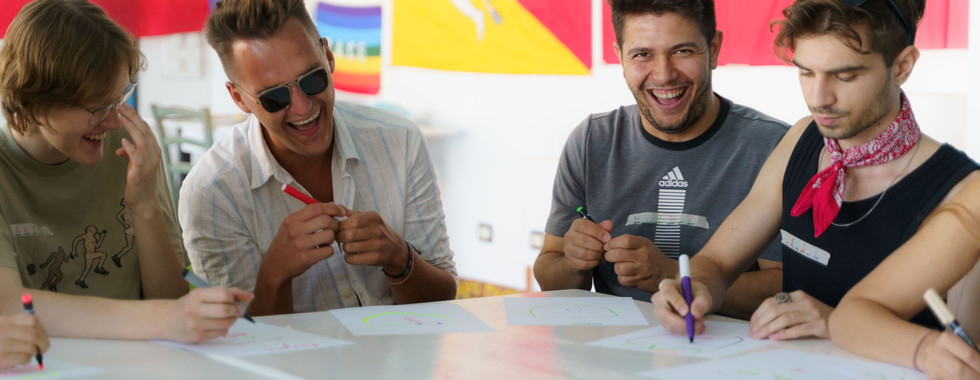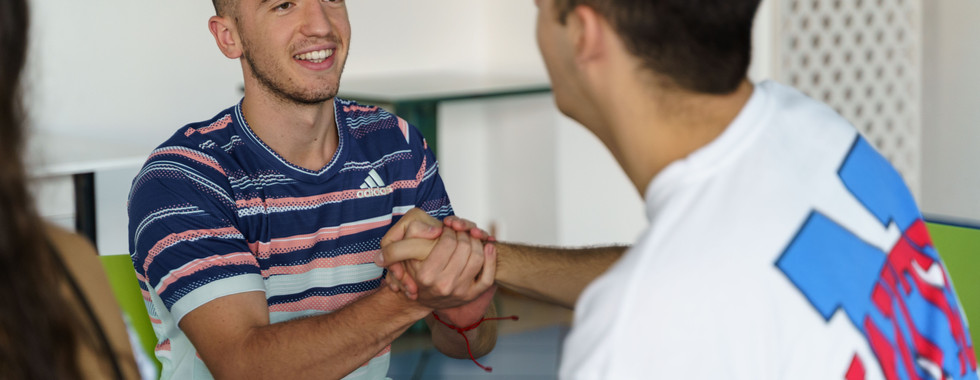🇮🇹 "Be Sustainable for a Green Future"
- Be The Change Italy

- Dec 17, 2022
- 2 min read
Updated: Dec 29, 2022
On September 19-27, 2022, 42 young people from Italy, North Macedonia, Turkey, Poland, Romania, and Spain gathered in Messina, Italy for the Youth Exchange "Be Sustainable for a Green Future," funded by Erasmus+. This project brought together students, young professionals, NEETs (Not in Education, Employment, or Training), and young people with fewer opportunities, all aged 18-25 and with a strong interest in sustainability.
The slogan of the Youth Exchange was "There is NO Planet B," reflecting the importance of taking action to protect our planet for future generations. The main objective of "Be Sustainable for a Green Future" was to raise awareness and responsibility for the impact of our actions on the environment.
The Youth Exchange aimed to increase participants' knowledge about sustainability and to exchange good practices on how to live more sustainably. It also sought to inspire participants to adopt more sustainable lifestyles and to support the development of new initiatives that encourage young people to live in a more environmentally-friendly way. Additionally, the Youth Exchange aimed to strengthen the network among the participating organizations and to create opportunities for future partnerships.
"Be Sustainable for a Green Future" is aligned with the European strategy for 2030, which aims for a more inclusive, smart, and sustainable development. It also aligned with the objectives of the Erasmus+ program and the national policies of the partner countries.
Check out our Project Booklet 📖
During the Youth Exchange, participants had the chance to develop their own ideas about ecology and sustainability and to engage actively in decision-making to create a greener future.
As part of the Youth Exchange, participants learned about the 17 Sustainable Development Goals (SDGs) established by the United Nations as part of the 2030 Agenda for Sustainable Development. These goals aim to end poverty, improve health and education, reduce inequality, and promote economic growth, all while addressing climate change and preserving natural resources.
The youth exchange included a variety of activities based on non-formal education: Intercultural Nights, brainstorming in various formats, Theatre performances, Outdoor Activities and practical workshops with the aim to develop new content for the project like this booklet, videos, testimonials, suggestions for a more sustainable living and much more.
Moreover, this youth exchange stressed the element of "peer-to-peer" learning and creates a supportive environment where young people could learn from each other experiences.
By using non-formal education methods, this project was able to create a more engaging and meaningful learning experience for the participants which received at the end of the week the Youthpass certificate.
In addition to the main activities, the participants also enjoyed exploring the beautiful region of Sicily, learning about different cultures and traditions, making new friends from across Europe, and understanding the value of intercultural differences.
Overall, this Youth Exchange provided participants with a wide range of knowledge and skills related to sustainability, SDGs, and project management, as well as the opportunity to learn about the Erasmus+ Programme.
Testimonials
Presentation of SDGs and situation in each Country























































































































































Comments